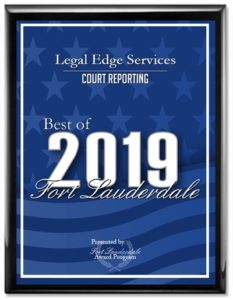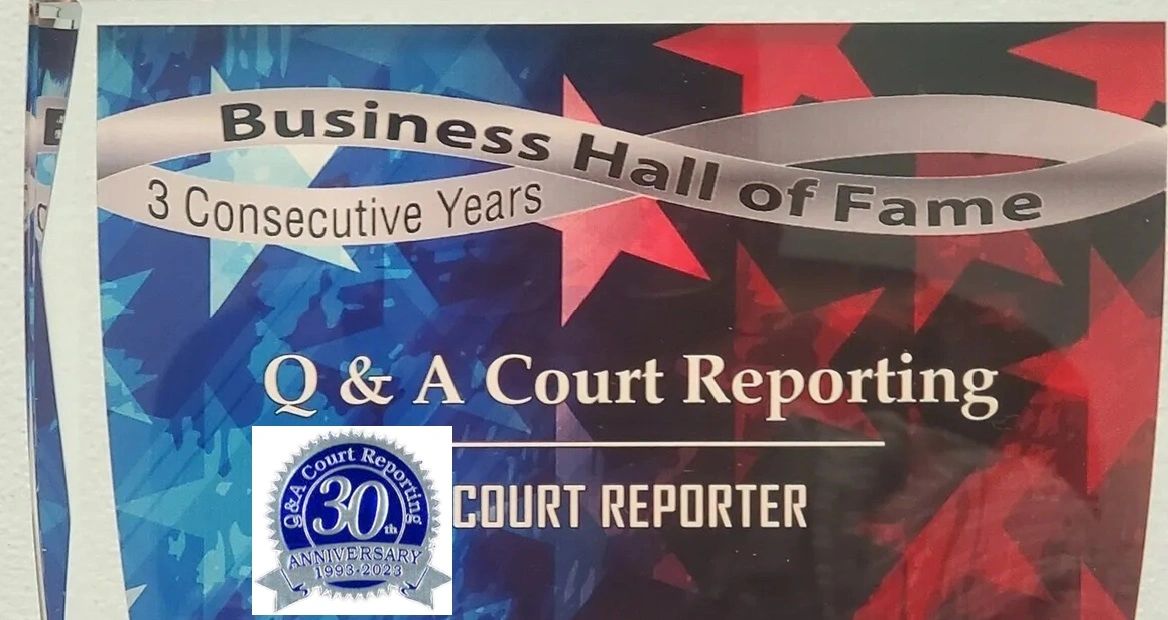Your Lawful Advantage: Unrivaled Court Reporting Chapel Hill
Your Lawful Advantage: Unrivaled Court Reporting Chapel Hill
Blog Article
The Value of Real-Time Court Coverage in Busy Legal Procedures
In today's fast-paced legal landscape, where time is of every detail and the essence matters, real-time court coverage has actually ended up being a vital tool for legal experts. With its ability to record and catch spoken words immediately, this cutting-edge modern technology not only guarantees the accuracy and immediacy of court proceedings yet likewise enhances cooperation and communication in the court room. As we explore the realm of real-time court reporting, we will certainly discover its interpretation, advantages, and the performance it offers legal proceedings. Additionally, we will certainly go over the advantages it uses in terms of accuracy and immediacy, as well as the future innovations and innovations that exist in advance.
Real-Time Court Reporting: Definition and Benefits
Real-time court coverage, a crucial element of lawful process, supplies a immediate and accurate transcription of talked words, supplying various advantages to all events involved. Real-time court reporting includes using stenographic equipments or voice acknowledgment software to catch talked words and transform them right into composed text in real-time. This allows lawyers, courts, and various other individuals to have a verbatim account of the process as they unfold.
One of the primary advantages of real-time court coverage is its efficiency. Furthermore, real-time court coverage enables participants to search and highlight details text, making it much easier to locate appropriate information quickly.
An additional benefit of real-time court coverage is its precision. Court press reporters are highly trained professionals who are competent in catching spoken words with precision and precision.
Furthermore, real-time court coverage enhances ease of access in lawful proceedings. The transcripts can be offered to individuals with hearing problems or those that might have difficulty adhering to spoken language in real-time. This ensures that all individuals have equivalent accessibility to the procedures and can totally take part in the legal procedure.
Efficiency of Real-Time Court Coverage in Legal Procedures
The performance of real-time court coverage in lawful procedures is apparent in its immediate access and ability to supply a verbatim account of talked words. Real-time court reporters use specialized equipment and software to record spoken words into created text in real-time, enabling immediate access to a verbatim document of the proceedings. This eliminates the need for hands-on transcription and significantly decreases the moment and initiative needed to create precise transcripts.
By offering a accurate and immediate record of the process, real-time court reporting makes it possible for attorneys, courts, and various other individuals to promptly examine and reference key details. This not just enhances the efficiency of the legal process but additionally enhances the general top quality of legal representation and decision-making.
Moreover, real-time court reporting permits instant accessibility to transcripts, eliminating the hold-ups connected with typical transcription methods. Attorneys can rapidly browse and find specific flows, saving beneficial time throughout instance preparation and presentation. Furthermore, real-time court reporting helps with seamless cooperation in between lawful teams, as numerous customers can access the records at the same time, no matter their physical area.
Precision and Immediacy: the Benefits of Real-Time Court Coverage
With its ability to supply instant and precise transcripts, real-time court reporting offers numerous benefits in terms of precision and immediacy. In fast-paced legal procedures, where every word issues, having real-time accessibility to the talked words and their accurate transcription is vital - Court Reporting Chapel Hill. Real-time court press reporters make use of sophisticated modern technology and specialized software, along with their remarkable skills, to guarantee that the process are accurately recorded in real-time. This permits instant accessibility to the talked words, making it much easier for courts, lawyers, and other events associated with the instance to review and refer to the records during the procedures.
The precision of real-time court coverage is unmatched. Stenotype reporter are educated to capture every word, phrase, and nuance of the procedures, continue reading this making certain that the final transcript is a true representation of what was claimed. This level of precision eliminates any space for misinterpretation or misunderstanding, as parties can depend on the verbatim records to comprehend the context and intent of the declarations made.
In addition, the immediacy of real-time court reporting is vital in time-sensitive legal proceedings. Attorneys can promptly look for details info, evaluation prior testimony, and even make use of the real-time records to develop questions right away. This permits an extra effective and efficient legal process, conserving important time for all parties entailed.

Enhancing Partnership and Communication in the Court Room With Real-Time Reporting
To promote efficient partnership and communication in the court, the application of real-time coverage verifies to be an important device. Real-time coverage involves making use of advanced technology that enables stenotype reporter to transcribe spoken words right into created message in real-time, making it instantly available to all celebrations involved in the legal procedures. This technology not only boosts the accuracy and immediacy of court coverage however likewise promotes far better cooperation and communication among attorneys, judges, and other participants.
With real-time reporting, all celebrations can access the records as it is being developed, either through a secure online platform or by viewing the message on private devices. This instant accessibility to the composed record allows attorneys to follow the procedures very closely, review and annotate the transcript, and make timely decisions during cross-examinations or when offering their instance - Court Reporting Chapel Hill. It likewise allows courts to refer to specific components of the transcript quickly, making sure justness and accuracy in their judgments
In addition, real-time coverage promotes reliable interaction among courtroom individuals. Lawyers can interact with each various other quietly via split second messaging, without interrupting the proceedings. This enables them to coordinate their approaches, ask clarifying questions, or talk to their clients quietly. Judges can likewise use real-time reporting to request clarifications or offer guidelines to the attorneys without disrupting the flow of the test.

The Future of Real-Time Court Coverage: Technologies and Improvements
As real-time court coverage remains to transform partnership and communication in the court, the future holds exciting possibilities for more developments and advancements in this field. With the fast improvements in modern technology, real-time court reporting is poised to become much more exact, efficient, and accessible.
One location of advancement is using man-made intelligence (AI) in real-time court coverage. AI-powered algorithms can transcribe and analyze spoken words in real-time, minimizing the need for human intervention and raising the speed and accuracy of the reporting process. This innovation can likewise be utilized to instantly produce summaries and highlights of court process, making it simpler for judges and legal representatives to review and reference crucial info.
One useful source more improvement imminent is the integration of real-time court reporting with digital truth (VR) and increased reality (AR) By incorporating the power of virtual reality and AR with real-time reporting, court rooms can be transformed into immersive atmospheres where jurors, legal representatives, and courts can visualize evidence, reconstruct crime scenes, and better understand complex legal principles.
Furthermore, advancements in cloud computing and information storage will certainly permit the smooth sharing and availability of real-time court transcripts. Attorneys and attorneys will certainly be able to gain access to these transcripts from anywhere, at any kind of time, making partnership and prep work for lawful procedures much more convenient and effective.
Conclusion
Finally, real-time court reporting plays a critical duty in fast-paced legal procedures. Its effectiveness, accuracy, and immediacy give significant benefits for both lawyers and the judicial process. In addition, real-time reporting improves cooperation and communication in the courtroom, enhancing the overall effectiveness of procedures. As advancements and advancements remain to shape the field, the future of real-time court reporting holds pledge for further enhancing and boosting the legal system.
Real-time court coverage, a vital component of legal process, gives a instant and precise transcription of talked words, using various benefits to all parties entailed. Real-time court reporting includes the use of stenographic equipments or voice recognition software program to record spoken words and transform them into written text in real-time. Real-time court press reporters make use of specialized tools and software program to transcribe spoken words into created message in real-time, enabling for instant accessibility to a verbatim record of the process. Real-time court reporters use innovative innovation and specialized software application, along with their exceptional abilities, this link to ensure that the procedures are properly transcribed in real-time. Real-time coverage involves the usage of sophisticated modern technology that permits court press reporters to transcribe spoken words right into composed text in real-time, making it quickly offered to all events included in the legal proceedings.
Report this page